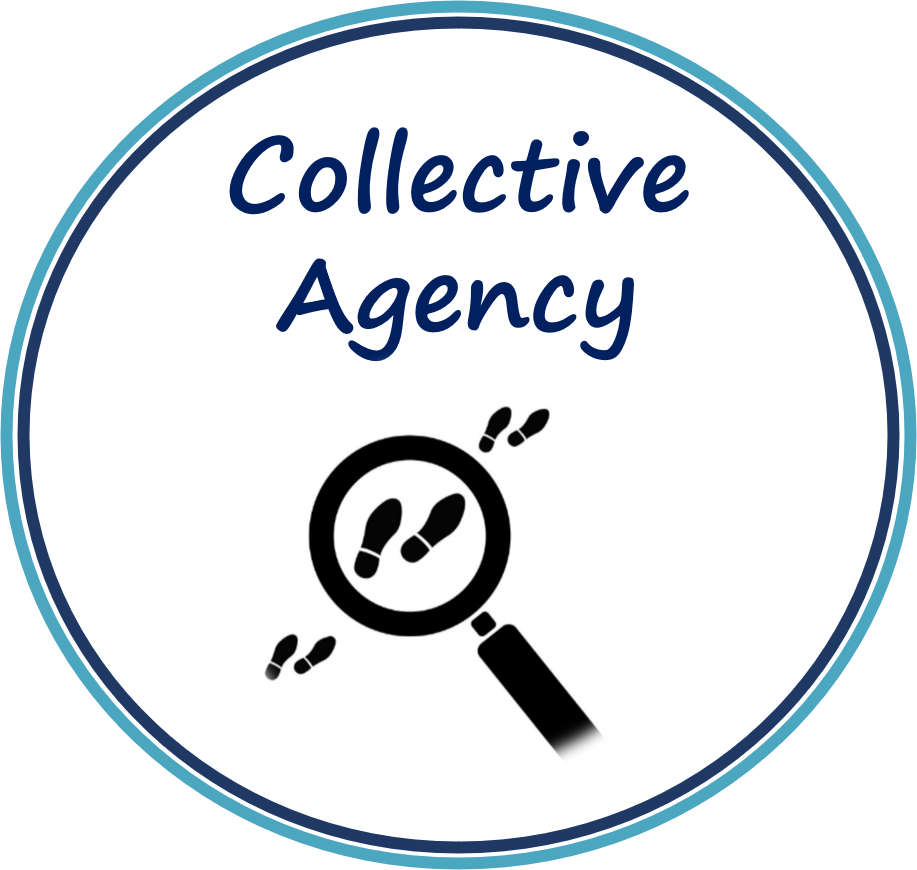
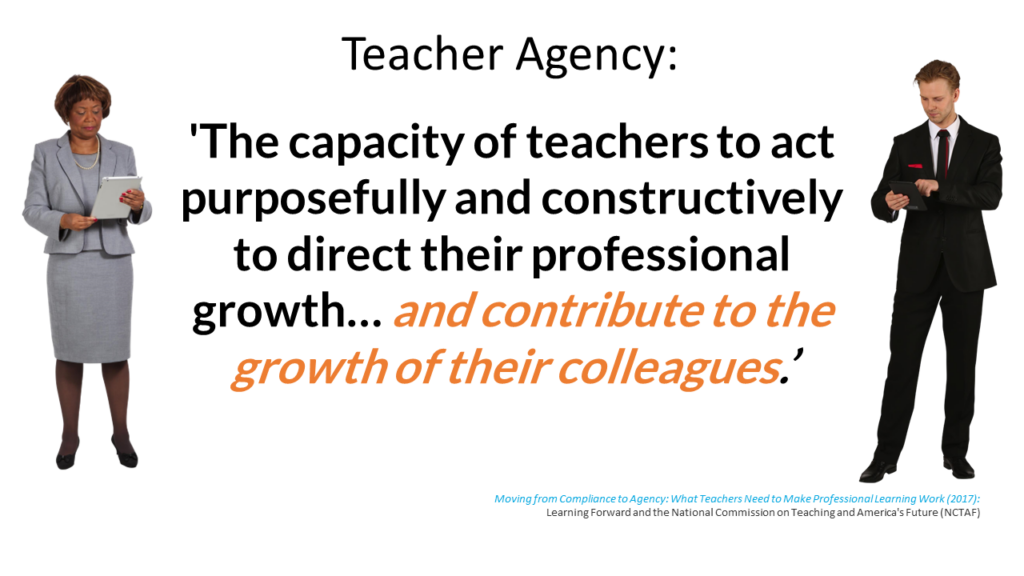
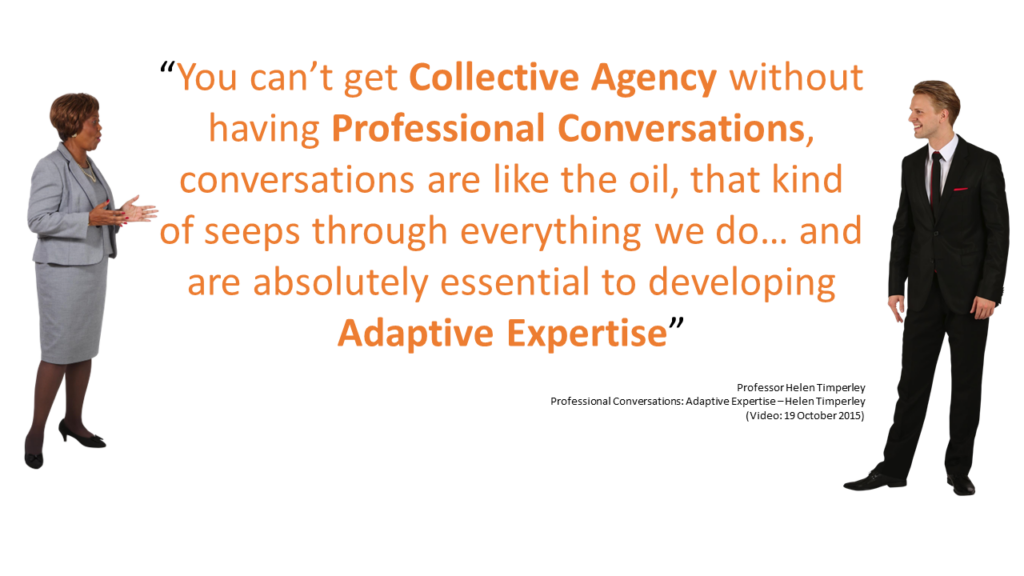
Unsurprisingly, data confirms that simply working with someone doesn’t automatically give rise to collective agency:
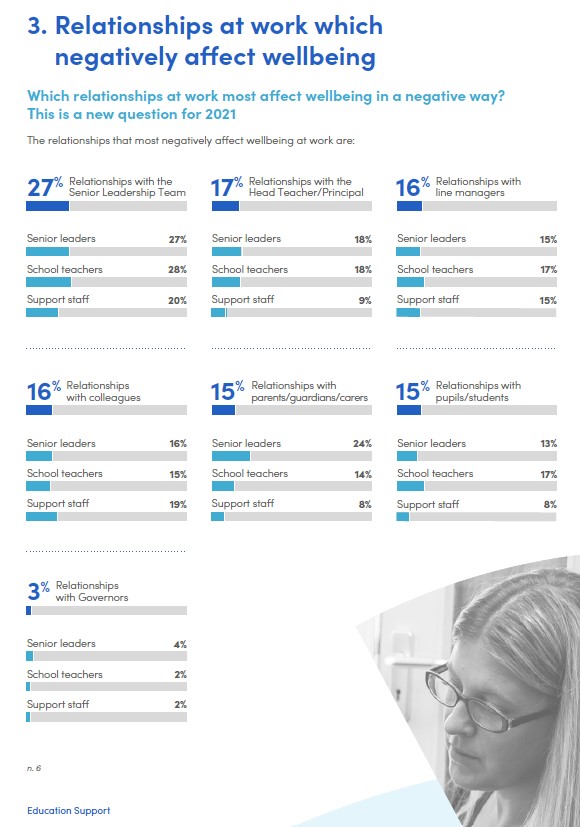

Sadly, it resonates with episodes within my experience…
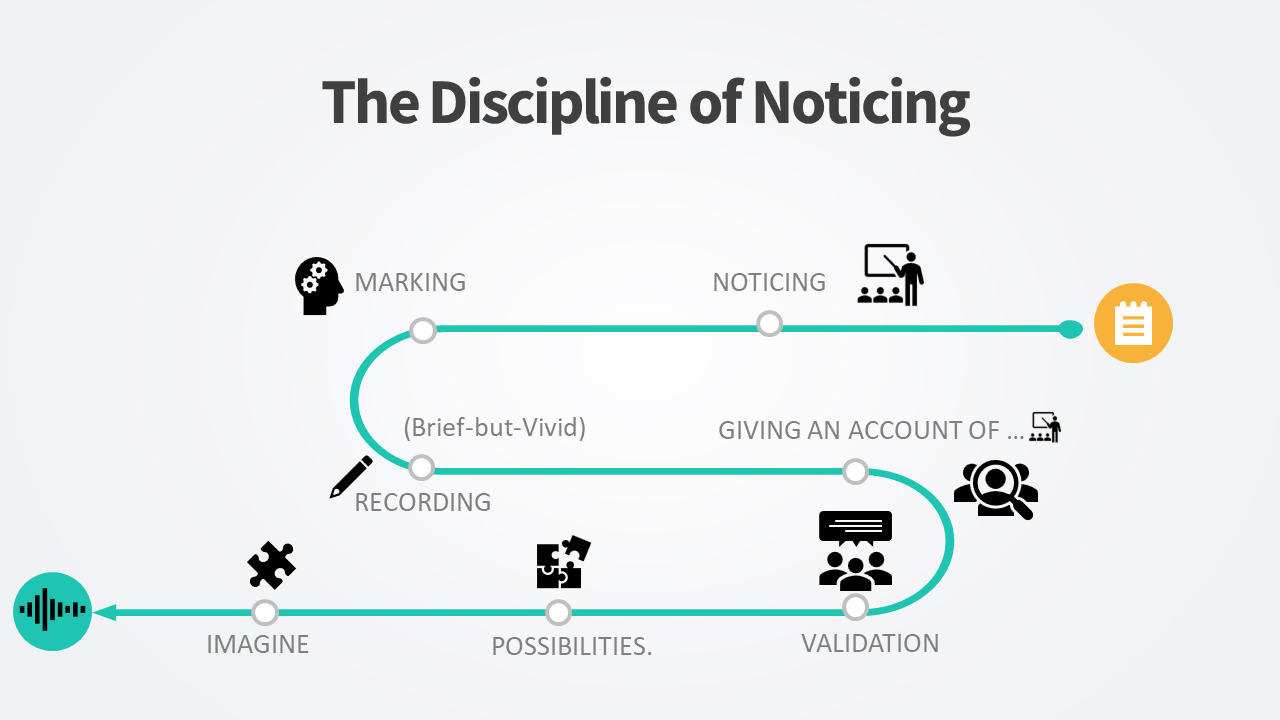

Without involving any colleagues at this stage, let’s begin to develop the habit of Noticing-Marking-Recording in lessons.
Think about a recently taught lesson and jot down aspects that you consider to be noteworthy (for example, something that evokes a feeling, or brings to mind something you have heard or read).
Read the first page of the following worked example for more of an idea of Noticing-Marking-Recording (click on the link below or download).
Ref: ‘Researching our practice using The Discipline of Noticing: A Practice Insight Working Paper’ by Daniel Brown (pages 12-15).

A simulated example:
During a recent Chalkface Check-Up review, Sam became intrigued by the invitation to state the impact of low-level disruptions. The options included:
- Internal calmness underpinned a professional cognitive response.
- Internal irritation – but managed a cognitive response.
- Internal irritation/frustration led to an emotional reaction.
Placing a discreet pen and notebook on her desk, she prepared herself to notice, mark, and record how she responded, or reacted, to incidents of low-level disruption during the lesson. At appropriate points during the lesson, Sam quickly jotted down keywords to make a meaningful record of the moments she had noticed and marked.
Later, Sam returned to her notebook. One noteworthy moment stood out from the keywords she had jotted down. She decided to add more details to the original record:
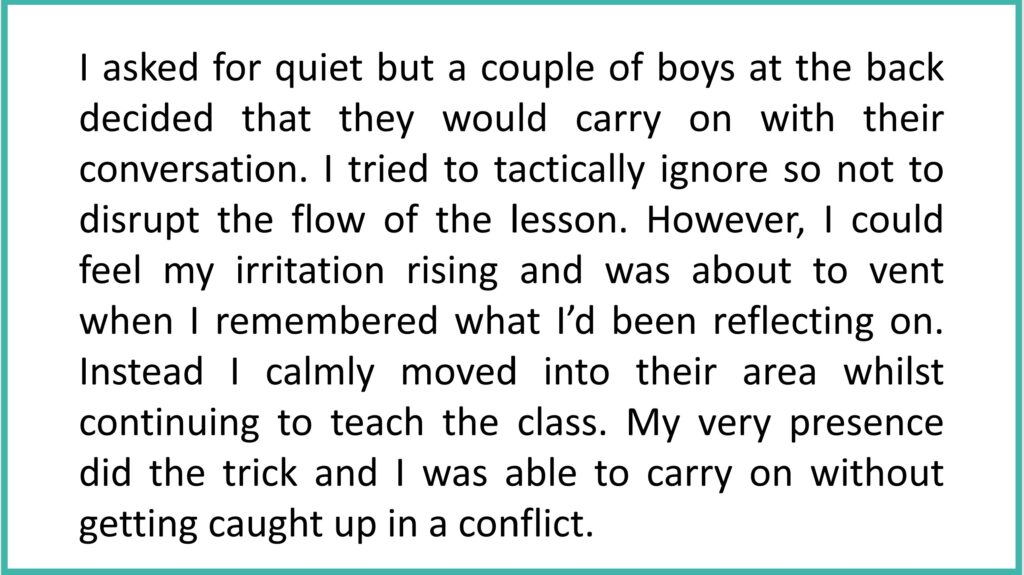
By bearing the Chalkface Check-Up statements in mind, Sam had been alerted to feelings of internal irritation, which had led her to discover a new strategy to address low-level disruption. Behaviour that had caused her to lose her temper in previous lessons, had instead prompted her to problem-solve independently. Her subsequent sense of agency illustrates the power of ‘I’.
Prioritising and scheduling time to move from ‘I’ towards ‘We’ and ‘Us’
Having felt the benefit of the exercise, Sam encouraged three of her colleagues to allow their Chalkface Check-Ups to illuminate areas they would like to explore in their lessons. They all agreed and, as a group of four, they committed to gather data to share their findings in a scheduled meeting.
Sam gained a quick overview of the next phase of the process:
… then revisited the example to more fully grasp the next steps:
Sam was keen to ensure the meeting would provide the necessary validation and opportunities where, ‘people could speak at length without fear of being interrupted, judged, or receiving unsolicited advice’. Her colleagues agreed to adhere to these guidelines and they came to the meeting prepared to respectfully probe accounts, explore possibilities, engage their imaginations, and collectively effect positive change.
The team of four found the experience so helpful, they created a
The Discipline of Noticing
Working Group:

If you and your colleagues are using the same reflective tool (e.g. Chalkface Check-Up), the Discipline of Noticing process provides an ideal platform for you to informally meet together to share insights and learn from each other.
In response to the comment in the Discipline of Noticing article (above, p.13):
“I have found that recognising some situation about to unfold, in time to do something about it, is the difficult part …”
I would recommend 70+ instances contained in the Signature of Expertise tools.
